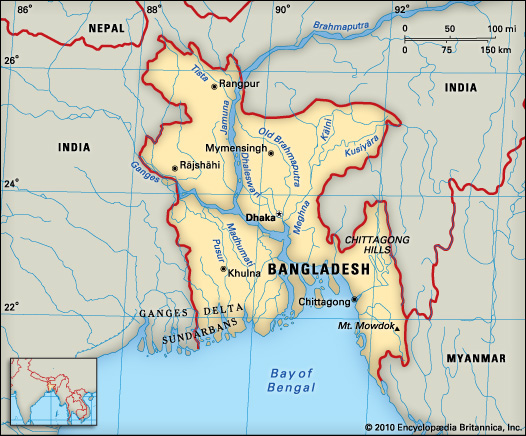Bangladesh sending its death squads for the UN Peacekeeping missions
– BGB being denied UN postings while India’s BSF personnel serve with various UN Missions –
New Delhi: Asian Centre for Human Rights in its report, “BANGLADESH: SENDING DEATH SQUADS TO KEEP THE UN’s PEACE”
(http://www.achrweb.org/
The troops which are being sent for UN peacekeeping missions include the Bangladesh Army personnel who are posted in the Chittagong Hill Tracts (CHTs) and the Rapid Action Battalion (RAB), which has been declared as ineligible to receive technical assistance from the United States under the Leahy Law because of its personnel being involved in gross human rights violations with impunity. Between 2004 and 2011, the Bangladesh Army personnel were responsible for 15 cases of extrajudicial killings,
464 cases of arbitrary arrest, 374 cases of torture and 285 cases of forcible evictions in addition to burning down of 1,070 houses of indigenous Jumma peoples of the CHTs. Bangladesh Army personnel also murdered at least 70 suspects of 2009 Bangladesh Rifles (BDR) mutiny at Pilkhana in their custody while the RAB which had 83 Army officers out of the 208 officers as of August 2013 were responsible for extra-judicial executions of 776 persons in alleged cross fire between January 2004 and June 2013. A large number of these human rights violators have been posted with the UN peace keeping missions.
“The cross-fire is a blatant cover up of the extra-judicial executions by the RAB. Since its inception in 2004, not a single death has been due to innumerable crossfire incidents, which supposedly involve cross-firing with criminal gangs and terrorist groups. About 18 RAB personnel were killed in the Pilkhana massacre and the rest died in road accidents.” – stated Mr Suhas Chakma, Director of Asian Centre for Human Rights.
Serving in a UN peacekeeping mission is deemed so lucrative [as a Bangladesh Army officer earn upwards of US $2,200 a month in addition to other allowances and parks for an officer against Taka 15,000 (about US $200) for an officer in the country and US $1,100 for a soldier, against Taka 7,717 (about US $100)] that Bangladesh Army has systematically monopolised the UN postings. Bangladesh Army constitutes 93% of the peacekeepers deployed from Bangladesh while the remaining 7% are from Bangladesh Police, Navy and Air Force personnel.
In fact, the denial of opportunities to serve with the UN missions was one of the main reasons for the revolt by the BDR personnel at Pilkhana, Dhaka on 25 February 2009 in which a total of 74 persons including 57 Army Officers deputed to the BDR from the army were massacred. The 10-member Investigation Committee formed by the Government of Bangladesh instead of resolving the grudge of the BDR personnel purposely misled the country by stating that the “United Nations has objected to the proposal of BDR
members being taken to foreign missions. Bangladesh Government has no jurisdiction in this matter”.
“This is another blatant lie as India’s Border Security Force personnel who are equivalent of the BDR in Bangladesh are regularly deployed for UN Missions and have previously served in Namibia, Cambodia, Mozambique, Angola, Bosnia & Herzegovina and Haiti. That Bangladesh refuses to include the BDR personnel, rechristened as Border Guards Bangladesh, despite a national tragedy like Pilkhana massacre shows the vested interest of the Bangladesh Army to monopolise the UN postings.” – further stated Mr
Chakma.
About 7% of the Bangladesh Army constantly remain deployed in UN Peacekeeping missions at any given point of time and the UN has been steadily contributing to increasing militarisation in the country and extending the grip of the Army on the country. Bangladesh increased its defence budget by over 11% for the Financial Year 2011-12, among others, to purchase 44 new Main Battle Tanks, three Armoured Recovery Vehicles and two brand new helicopters for the army from China to provide logistical
support allegedly for UN peacekeeping missions.
As a number of human rights violators from Bangladesh have been posted with the UN peacekeeping missions, Asian Centre for Human Rights called upon the United Nations to strictly implement “Human Rights Screening of United Nations Personnel Policy” of December 2012 to bar deployment of such violators.




